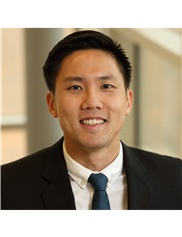Grants Funded
ASPS/PSF leadership is committed to continuing to provide high levels of investigator-initiated research support to ensure that plastic surgeons have the needed research resources to be pioneers and innovators in advancing the practice of medicine.
Research Abstracts
Search The PSF database to have easy access to full-text grant abstracts from past PSF-funded research projects 2003 to present. All abstracts are the work of the Principal Investigators and were retrieved from their PSF grant applications. Several different filters may be applied to locate abstracts specific to a particular focus area or PSF funding mechanism.
Improving Cosmetics and Function of Skin Grafting by Blocking Mechanotransduction
Kellen Chen PhD
2021
Stanford University
Translational and Innovation Research Grant
Wounds / Scar, General Reconstructive
Impact Statement: Traumatic soft-tissue defects such as burn wounds can lead to long-term disability caused by skin contracture and hypertrophic scar formation. The current standard of care involves split-thickness skin grafting (STSG) for wound coverage, which suffers from several limitations. In addition to the inability of STSG to prevent scar contractures, which severely compromise normal skin function, STSG also results in an undesirable “mesh-like” appearance of the healed graft. There are currently no FDA-approved pharmacologic therapies to prevent or mitigate scar formation resulting from STSG. We propose a novel therapeutic approach to address the critical need to prevent scar formation resulting from STSG and promote regenerative healing of traumatic skin injuries.
Project Summary: Scars of the skin affect millions of patients worldwide and severely impact the quality of life of affected patients, especially children and patients with major burns. Currently, there are no effective pharmacological treatment options for patients with deep partial-thickness injuries that prevent scar formation. Standard surgical treatment options for superficial soft tissue defects such as burn injuries include split-thickness skin grafting (STSG). STSG often leads to an aesthetically undesirable appearance, especially if the skin graft is meshed. Additionally, healed wounds utilizing STSGs suffer from several disadvantages including, fragility, abnormal pigmentation, altered sensitivity, and lack of skin appendages such as hair. Recently, it has been demonstrated that mechanical stress drives fibrotic wound healing, resulting in hypertrophic scar (HTS) formation. Based on strong laboratory and preclinical animal findings, our laboratory has demonstrated that pharmacological inhibition of the FAK pathway, a key mediator of mechanotransduction, significantly attenuates scar formation while accelerating healing of deep dermal injuries. In recent years, we have developed a therapeutic hydrogel dressing that releases an FAK inhibitor (FAK-I) compound in a controlled manner upon direct contact with open wounds. Small and large animal studies have proven that FAK-I therapy promotes natural skin regeneration with reduced scar formation and is safe for topical use in animal models. The proposed study aims to investigate whether FAKI-I hydrogels can mitigate scar formation resulting from STSG treatment of soft tissue defects. We aim to create full-thickness injuries in a clinically relevant pig model utilizing STSG to observe whether our FAK-I hydrogel treatment will improve regeneration and prevent scar formation. Further, we plan to investigate the specific cellular subpopulations that are involved in scar formation after STSG as well as the transcriptomic changes induced within these cells by treatment with FAK-I using single-cell RNA sequencing both treated and untreated wounds over time.
 Kellen Chen is a biomedical engineer with experience in tissue engineering and medical device industry. He previously earned his PhD in Biomedical Engineering from the University of Virginia and BS in Bioengineering from the University of California, Berkeley. He has 6+ years of research experience using experimental and numerical methods to determine the effect of mechanical loading on native and engineered tissues for wound healing. He is highly interested in using his biomedical research and engineering skills to develop/translate technology to the patient bedside/clinic. In the Gurtner lab, he is studying and developing therapies to combat scar formation during wound healing to promote regeneration in human patients.
Kellen Chen is a biomedical engineer with experience in tissue engineering and medical device industry. He previously earned his PhD in Biomedical Engineering from the University of Virginia and BS in Bioengineering from the University of California, Berkeley. He has 6+ years of research experience using experimental and numerical methods to determine the effect of mechanical loading on native and engineered tissues for wound healing. He is highly interested in using his biomedical research and engineering skills to develop/translate technology to the patient bedside/clinic. In the Gurtner lab, he is studying and developing therapies to combat scar formation during wound healing to promote regeneration in human patients.